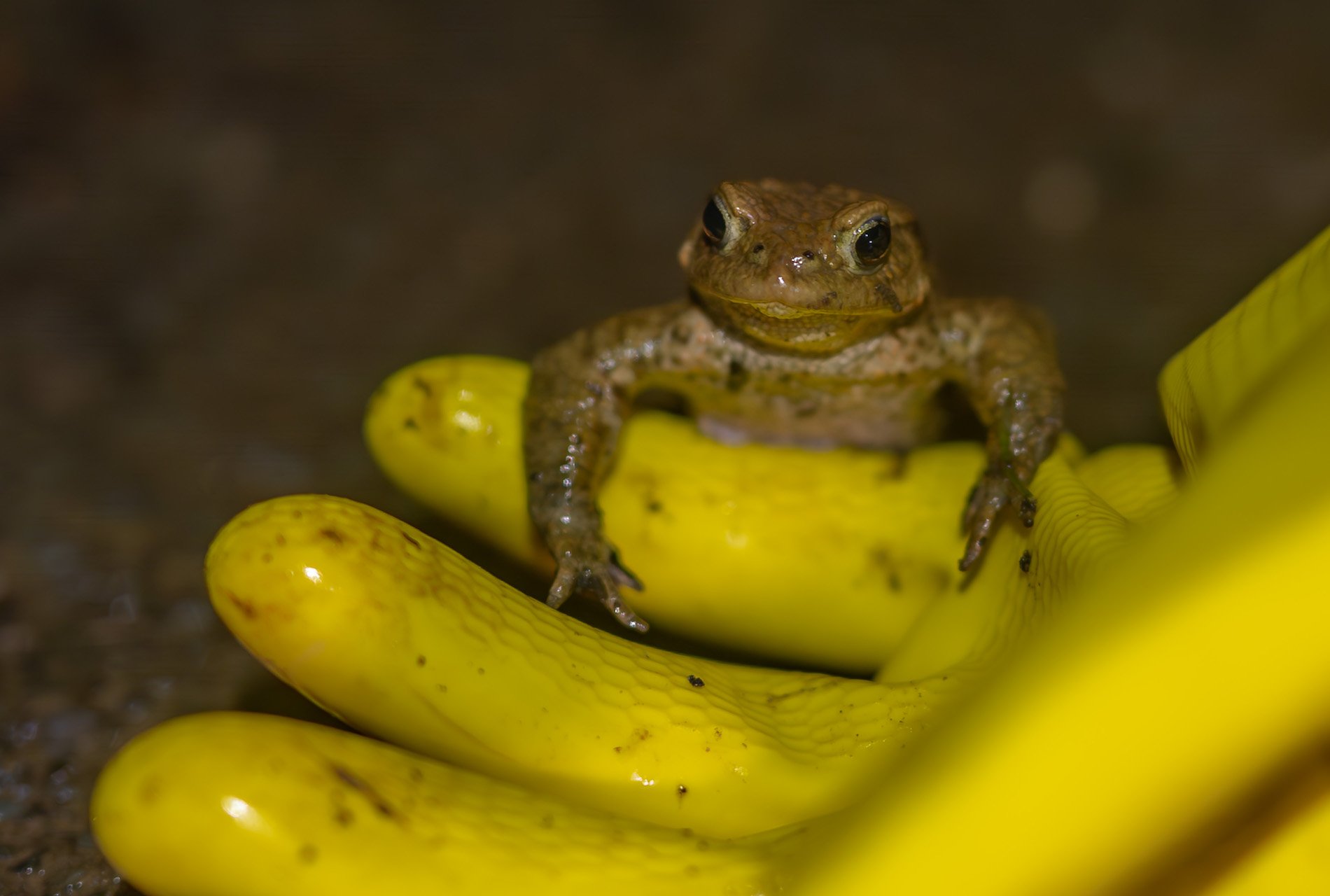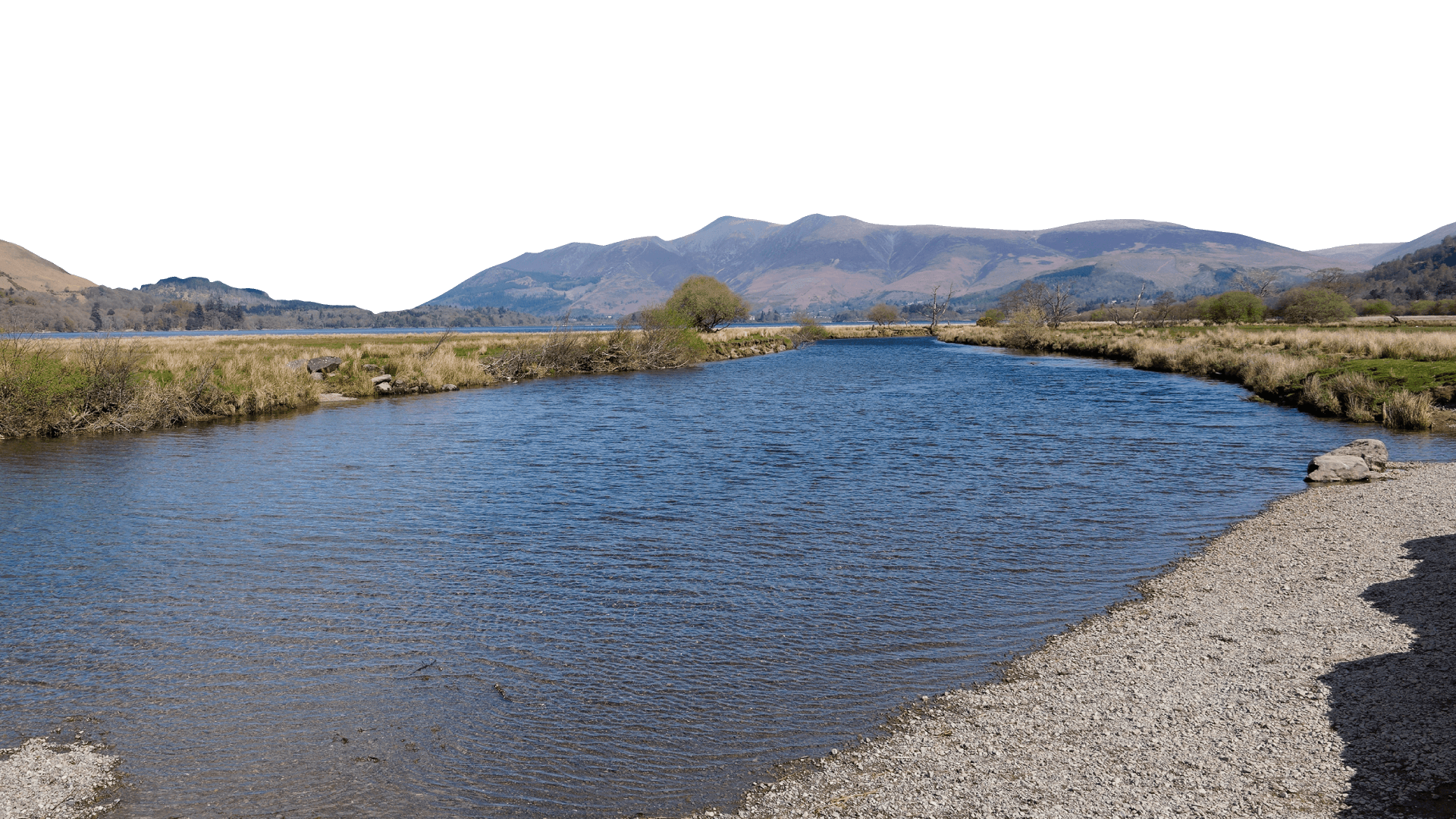
Toad Patrol
Common Toads are very particular about where they breed and often migrate back to their ancestral breeding ponds every year. They follow the same route, regardless of what gets in their way which means they cross roads and often get run over by traffic.
Every year volunteers across the country go out at night to help amphibians (frogs, toads and newts) on their spring migration to cross busy roads. We organise volunteer patrols near Keswick and are always on the look-out for more people willing to volunteer for this yearly event.
Toads on Roads is a Citizen Science project, co-ordinated by the amphibian and reptile charity Froglife, that collects data from different toad patrols and uses it to help support research. They host a map so you can find your nearest toad crossing and also allows you to register a new toad crossing site if you spot a site where they are being run over (please note that reporting a crossing does not necessarily mean it will be patrolled).
What we do
On a toad patrol, WCRT staff and volunteers walk up and down a short stretch of road in pairs for up to two hours (usually in the dark and wet!). We wear headtorches and shine them into the road to look for frogs, toads and newts. We pick up the creatures we can find using gloves and put them in a bucket (this does mean walking into the road to collect them).
Once we have a few, we release them on the other side of the road at a safe spot, as close to their breeding location as possible (we know these locations from previous years). We also record and move any dead animals we find.
Where we patrol
There are two sites near Keswick that we patrol with volunteers. These are both on the A591, one at Dodd Wood and one at Low Nest (on the brow of the hill on the road towards Thirlmere). We tend to patrol more often at the Low Nest site because this stretch of road has a footpath and is therefore safer. There is inherent risk involved in this work, but we do provide training for road awareness to help keep everyone safe.
Patrol dates
Amphibians tend to move at night when it’s above 5°C and wet. It usually happens for a few weeks around March, but the time it starts and ends is weather dependent. The days we decide to go are often decided quite late-on as it is entirely weather dependent, so be prepared that you will get late notice. We usually start at dusk and patrol for a couple of hours.
Want to get involved?
You need to be:
Able to get to the sites independently (public transport does not run at the times required)
Fit enough to walk (slowly) for at least an hour and be able to bend down to pick up animals
Comfortable walking at night in the rain by the side of a road
Comfortable, with training, picking up amphibians (although you can be paired with someone who can do this bit if necessary)
Able to tell, with training, the difference between frogs and toads (so we can keep track of numbers)
Free evening times during March and available at short notice
Contactable by email (to reduce admin time)
Aware of traffic, and be able to respond quickly if necessary
Able to carry out the work at your own risk
Things to note
Due to the nature of the activity, this is not suitable for children
When joining a patrol, please car share where possible as there is not a lot of parking space
You will come across dead animals which can be quite distressing
Sign up for Toad Patrol
Sign up to volunteer for WCRT and tick ‘Toad Patrol’ as one of your general interests. If you have any questions contact our designated Toad Patroller Mia.







